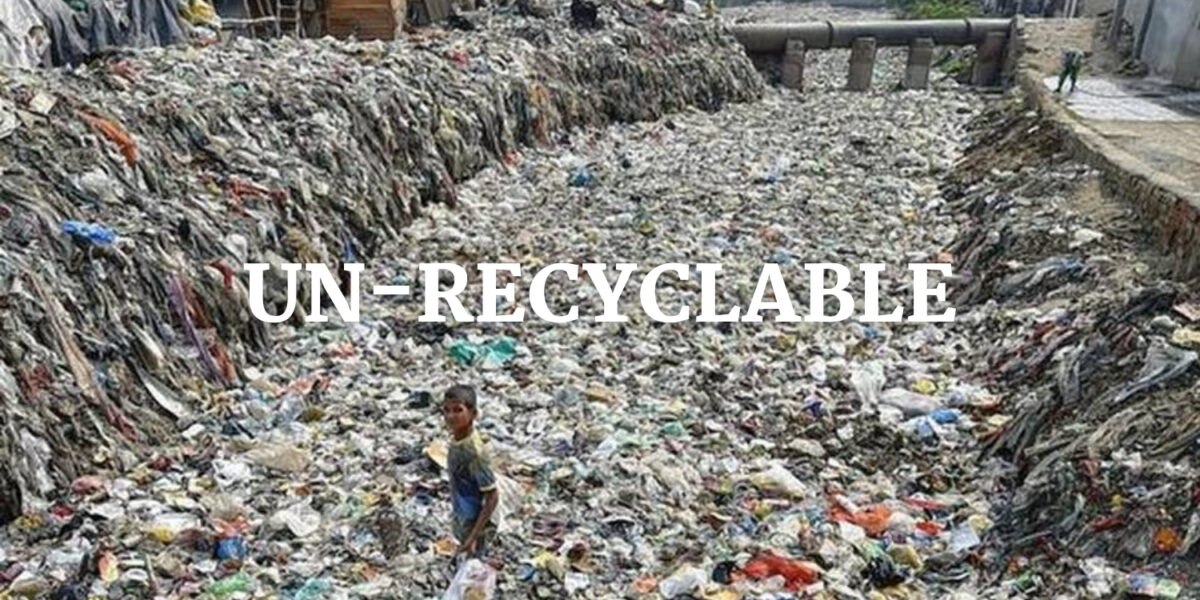The Awful Reality of ‘Single Use’ Plastics
Listen to this great episode of NPR’s Planet Money:
Humans manufacture one million disposable water bottles every minute of every day.
Humans still assume that plastic is a disposable material.
Humans worldwide are creating approximately 330 million tons of plastic every year.
Scientists estimate that the Atlantic Ocean alone currently contains approximately 200 million tons of discarded plastic.
Humans began producing plastic products around 1950. Plastic does not occur in nature and nature has no good way of dealing with it.
To address our plastic pollution crisis, we must transition all plastics to biodegradable. We must first address the ‘source’ problem before we can hope to clean up what has accumulated.







__________
Facts from Global Citizen
∙ 73% of beach litter worldwide is plastic according to National Geographic.
∙ Worldwide, about 2 million plastic bags are used every minute. The average time a plastic bag is used for is 12 minutes. Plastic bags take a thousand years to decompose.
∙ 90% of plastic polluting our oceans is carried by just 10 rivers. According to researchers from the World Economic Forum, just 10 rivers across Asia and Africa carry 90% of the plastic that ends up in the oceans.
These rivers are in Asia: Yangtze, Indus, Yellow, Hai He, Ganges, Pearl, Amur, and Mekong. Two of the rivers are in Africa: Nile and the Niger.
The World Economic Forum added that the two things all these rivers have in common is high population living in the area and poor waste management systems.
∙ Plastic is killing more than 1.1 million seabirds and animals every year. A study conducted by the University of Queensland in Australia, based on data collected since the late 1980s, found that Green sea turtles now ingest twice the plastic they did 25 years ago.
According to the United Nations, ingestion of plastic kills an estimated 1 million marine birds and 100,000 marine animals each year.
Additionally, more than 90% of all birds and fish are believed to have plastic particles in their stomach. It’s because plastic breaks up into tiny pieces in the sea, which are then consumed by fish and other sea animals.
Research from Plymouth University has found that close to 700 species of marine life are facing extinction due to the increase of plastic pollution.
∙ The average person eats 70,000 microplastics each year. That works out to about 100 bits of microplastic over the course of just one meal, according to a study published in Environmental Pollution.
A team of UK-based researchers put petri dishes with sticky surfaces next to dinner plates in three homes in the UK. After just 20 minutes, the dishes accumulated an average of 14 microplastics.
∙ Over the past 50 years, world plastic production has doubled. According to the World Economic Forum, while increasing numbers of organizations and countries are banning plastic use and production, the world’s leading plastic manufacturers are planning to increase production by almost a third over the next five years.
In 1974, global plastic consumption per year was 2 kilograms (4.4 pounds) per capita. Today, this has increased to 43 kilograms (about 95 pounds) — and this number is still set to increase.
According to National Geographic, if plastic consumption increases at its current rate, by 2050 there will be 12 billion metric tons of plastic in landfills.
______________
Links to Global Citizen articles:
UK Flooding Uncovers Shocking Scenes of Plastic Pollution
https://www.globalcitizen.org/en/content/yorkshire-flooding-shocking-plastic-pollution/
Scientists Accidentally Created a Plastic Bottle-Eating Mutant Enzyme
https://www.globalcitizen.org/en/content/plastic-bottle-waste-eating-enzyme-mutant/
Scientists Discover Plastic-Eating Caterpillars That Could Help Fight Waste
https://www.globalcitizen.org/en/content/ocean-plastic-waste-scientist-caterpillar/
